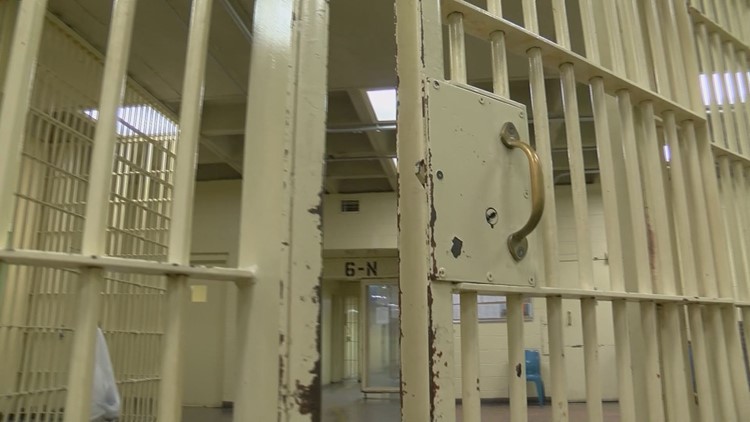SAN DIEGO COUNTY, Calif. — County supervisors Tuesday unanimously voted to end the practice of charging jail inmates for phone calls and video visits. During its virtual meeting, the board also directed Chief Administrative Officer Helen-Robbins Meyer to restructure or terminate the existing contract with Securus Technologies.
County staff will develop a policy by May 4 that prohibits the county from generating revenue from these fees or from entering into agreements that charge inmates for communication services.
Under the current contract, Securus charges between 21 and 33 cents per minute for inmate calls. The company also charges $19.95 for a 20-minute video visitation and $2 per voice message.
Previously, the San Diego County Sheriff's Department opposed ending the practice, arguing that the fees went toward the inmate welfare fund, which pays for educational programs and other services. The department would collaborate with Helen Robbins-Meyer to restore the fund, according to the county.
Supervisor Terra-Lawson Remer sponsored a proposal to make phone calls from county detention centers free. Lawson-Remer said her office received hundreds of comments in support of free jail phone calls.
"The pandemic has shown how important it is to communicate with the outside world, but right now, that's not the case for everyone in this region," she added.
According to Lawson-Remer's office, a 2014 study of communities in 14 states found that the costs of maintaining contact by telephone or visitation contributed to unsustainable debt burdens for 34% of families.
Lawson-Remer cited the case of Georgina Mercado, a 37-year-old mother of three young children who was arrested in 2016 in San Diego's Barrio Logan neighborhood.
Mercado "rarely called her family while jailed because she could not afford the fees, forcing her to consider taking a plea deal so she could communicate with her children again," Lawson-Remer said.
Charges against Mercado were eventually dropped after witnesses testified to her innocence, "but she spent three months in jail until she was exonerated," Lawson-Remer added.
Phone charges apply to all individuals awaiting a hearing or sentencing, not just those serving a sentence in the jails, according to Lawson- Remer's office. There are approximately 5,000 people in the county's detention system on any given day, with over 70% of them awaiting sentencing.
Supervisor Joel Anderson said while allowing free calls for inmates is the right thing to do, some may not understand that fees from those calls help reduce recidivism. Around $2.8 million is "used for great programs" for inmates, Anderson said, adding that he wants to ensure the board's action results in better outcomes.
Joanna Acocella, vice president of corporate affairs at Securus, said her company supported "providing services in a manner that best serves the needs of the county."
She added Securus is willing to work with the county and "remains open to finding other opportunities."
Acocella said Securus provided over 36,000 free calls for inmates during the pandemic, but didn't specify if that was in San Diego County or elsewhere.
During an hour-long public comment period, nearly all callers were in favor of Lawson-Remer's proposal.
Mark Stutzman, a corporate securities attorney and American Civil Liberties Union volunteer, said five years ago, his mentally ill daughter was incarcerated after a domestic dispute, and his family couldn't contact her for days -- "at one of the most emotionally fragile moments in life."
Stutzman added that he could afford to pay those call fees, but others don't have that luxury. "The county shouldn't be making a profit off, literally, its captive residents," he said.
A former retired Orange County prosecutor had a different viewpoint, however. Jim Mendelson, now a Fallbrook resident, said making jail calls free could lead to witness intimidation or criminal activity.
He added that computer technology can allow inmates to make reduced- rate calls to family members or attorneys, and urged the board to review these issues before ending the Securus contract.
San Diego County Supervisors vote to end charging jail inmates for phone calls
County staff will develop a policy by May 4 that prohibits the county from generating revenue from these fees.



